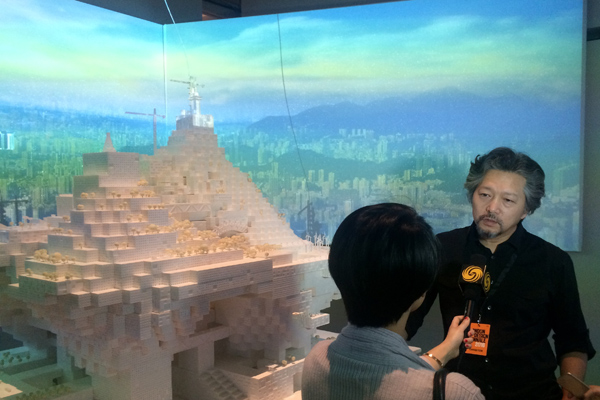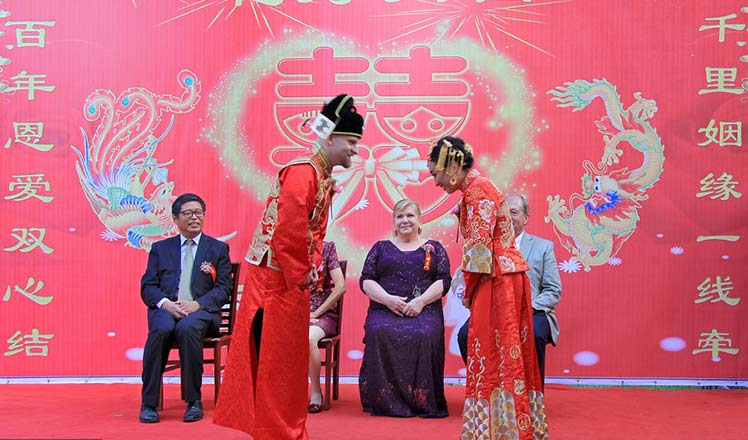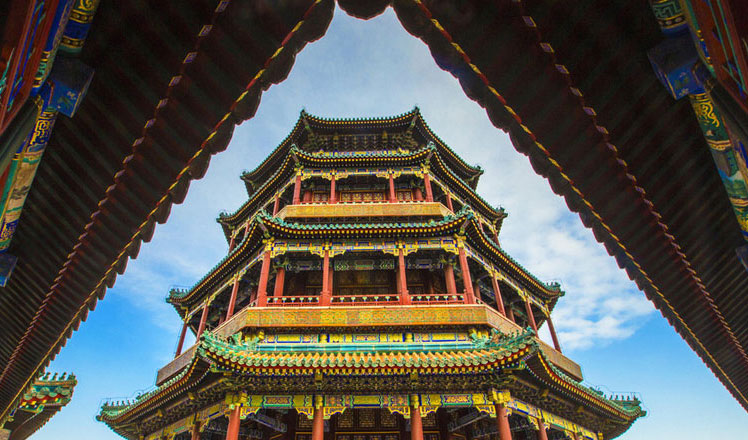Chinese architect shines at London design fair
Updated: 2016-09-13 16:21
By Angus McNeice(China Daily UK edition)
|
||||||||
 |
|
Liu Xiaodu, founding partner of Urbanus, explains the concept for his design. [Photo provided to chinadaily.com.cn] |
This growth, boosted by its designation as China's first special economic zone in 1980, has seen Shenzhen become an important economic hub in southern China.
However, the city faces mounting challenges in dealing with urban congestion.
Liu Xiaodu, founding partner of architectural company Urbanus, believes cities such as Shenzhen will benefit from a radical new approach to urban planning, centered around high-density, communal living spaces.
"We are running out of land," he said. "We have to think of alternative ways, rather than building endlessly... The world is changing. People are moving toward co-living, co-working areas. Younger people are starting small businesses and working in shared spaces. I think the old, conventional way is not suitable for them-it's very expensive and not flexible."
Liu is exhibiting a model megastructure named DenCity at this year's London Design Biennale. The installation is China's entry at the design fair, which showcases 37 "visions of Utopia".
Other visions come from design teams worldwide, and this year's theme marks the 500th anniversary of the publication of Sir Thomas More's seminal book Utopia.
Sir John Sorrell, chairman of the biennale, said, "I believe that the installation that has come all the way from Shenzhen is a very intelligent piece of work."
DenCity imagines an enormous structure that could house 50,000 people who live, work and spend their leisure time in the self-sustaining building.
Liu said: "New ideas are needed to solve the problem of urban congestion. In Shenzhen's high-tech area, new young talent is coming to work in tech companies and it needs living space.
"Land is very costly-what we propose is to double the density of a regular development project. With higher density and less spending on land, rent is cheaper."
Liu and his team draw inspiration from ancient forms of Chinese living and apply them to modern architecture. In 2009, Urbanus completed Tulou, a 220-apartment housing complex for people from low-income families in Guangzhou, Guangdong province.
- Britain's ex-leader Cameron resigns as lawmaker
- US flies B-1B bombers over ROK after DPRK's nuke test
- S Korea jolted by biggest-ever earthquake, tremor felt nationwide
- Cuba, US hold first talks on intellectual property
- Princeton, Cal top college rankings
- Clinton says may restart campaigning in a 'couple of days'

 Orphaned Chinese marries American at SOS village
Orphaned Chinese marries American at SOS village
 French royal porcelains shine in Xi'an
French royal porcelains shine in Xi'an
 How to raise great kids? A case for twin girls
How to raise great kids? A case for twin girls
 Photographers capture the fun side of a full moon
Photographers capture the fun side of a full moon
 Top 10 most valuable companies in China
Top 10 most valuable companies in China
 US marks 15th anniversary of 9/11 attacks
US marks 15th anniversary of 9/11 attacks
 Beautiful, smart robots shine at expo in Nanjing
Beautiful, smart robots shine at expo in Nanjing
 In pics: Top 10 most global cities in 2016
In pics: Top 10 most global cities in 2016
Most Viewed
Editor's Picks

|

|

|

|

|

|
Today's Top News
Trump outlines anti-terror plan, proposing extreme vetting for immigrants
Phelps puts spotlight on cupping
US launches airstrikes against IS targets in Libya's Sirte
Ministry slams US-Korean THAAD deployment
Two police officers shot at protest in Dallas
Abe's blame game reveals his policies failing to get results
Ending wildlife trafficking must be policy priority in Asia
Effects of supply-side reform take time to be seen
US Weekly

|

|








